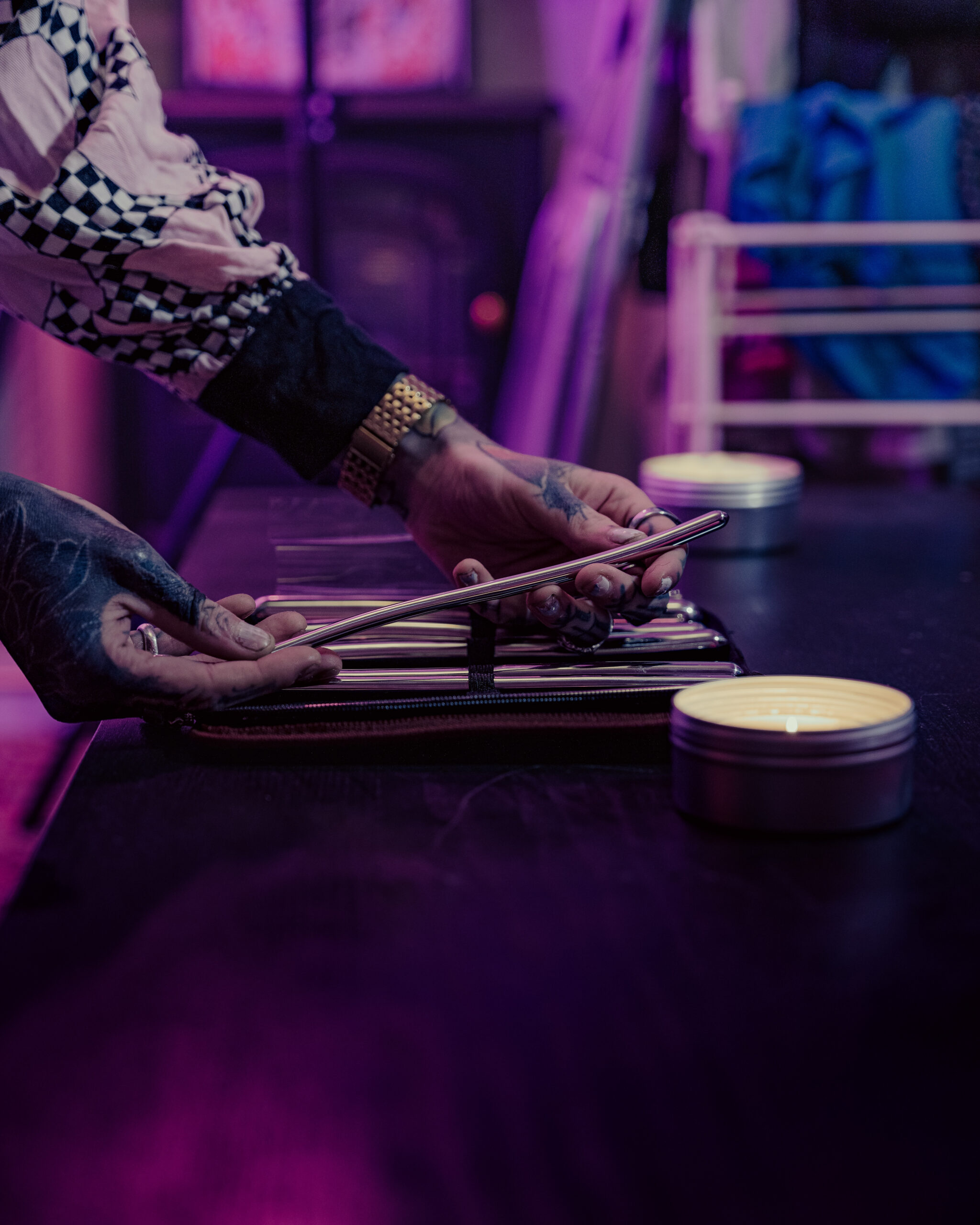Understanding Agender Identity

Exploring agender identity delves into a world beyond the traditional binary of male and female. Agender individuals identify as having no gender or falling outside the gender spectrum. This exploration seeks to shed light on the lived experiences of agender people, uncovering their unique perspectives, challenges, and triumphs in navigating a society often defined by rigid gender norms.
Defining Agender
Understanding agender identity means recognizing that gender is not always binary. Agender individuals do not identify as male or female; they may experience no gender at all or feel like their gender exists outside the traditional categories.
It’s crucial to remember that agender is a valid and legitimate gender identity. Agender people have diverse experiences and expressions, and their identities are just as real and important as any other.
Experiences of Agender Individuals
Living as an agender person can be both liberating and challenging. While it offers the freedom from societal expectations tied to traditional genders, navigating a world designed around binary categories can present hurdles.
Agender individuals may face misunderstanding and lack of acceptance from family, friends, or society at large. They may encounter difficulties finding spaces where they feel truly comfortable and seen.
Despite these challenges, many agender people find strength in their identity. They embrace the fluidity and individuality that comes with existing outside the gender binary. They often advocate for greater understanding and acceptance of non-binary identities.
Navigating Society as Agender
Exploring agender identity is about venturing beyond the confines of traditional male and female categories. It’s about understanding a world where gender exists on a spectrum, allowing individuals to define themselves outside of societal norms. This exploration seeks to illuminate the experiences of agender individuals, revealing their unique journeys as they navigate a society often built upon binary constructs.
Social Perceptions and Challenges
Navigating society as agender can be a complex experience. Rigid gender roles and expectations are deeply embedded in many aspects of life, from language and social interactions to institutions and cultural norms. Agender individuals may encounter difficulty finding spaces where they feel comfortable expressing themselves authentically.
One challenge is the pervasive use of gendered language. Terms like “he,” “she,” “ladies,” and “gentlemen” often assume a binary understanding of gender, making it difficult for agender people to be accurately represented or addressed. This can lead to feelings of invisibility or misgendering, which can be deeply upsetting and invalidating.
Another challenge arises from societal assumptions about how agender individuals should look, behave, and present themselves. These expectations can create pressure to conform to a gender stereotype that doesn’t align with their identity. Agender people may experience judgment or scrutiny for not adhering to these unwritten rules, which can lead to feelings of isolation and stress.
Furthermore, agender individuals may face discrimination in areas such as healthcare, employment, and housing. Lack of understanding about non-binary identities can result in prejudice and unequal treatment, hindering their access to opportunities and resources.
Despite these challenges, the agender community is resilient and resourceful. Many individuals find support through online communities, advocacy groups, and social movements that fight for greater visibility and acceptance of gender diversity. As awareness and understanding of agender identities continue to grow, society can move towards a more inclusive and equitable future.

Expressing Gender Identity
Navigating society as agender can be complex due to ingrained binary gender norms. Language often assumes a male/female dichotomy, making it difficult for agender individuals to be accurately addressed or represented. This can lead to feelings of invisibility or misgendering, which can be emotionally distressing.
Society also imposes expectations about how agender people should look and behave, based on traditional gender roles. These pressures can make it challenging for agender individuals to express themselves authentically without facing judgment or scrutiny.
Discrimination against agender people can occur in various areas like healthcare, employment, and housing due to a lack of understanding about non-binary identities. This inequality hinders their access to opportunities and resources.
Despite these challenges, the agender community is strong and resilient. Support networks through online communities, advocacy groups, and social movements are crucial in fostering visibility and acceptance for gender diversity. Continued education and awareness will contribute to a more inclusive society.
Relationships and Identity
Relationships and identity are intricately intertwined, especially for individuals who identify as agender.
Dating and Romantic Relationships
Navigating relationships can be complex for anyone, but for agender individuals, it can present unique challenges and opportunities. Understanding an agender person’s identity is crucial for building healthy and fulfilling relationships.
It’s important to remember that gender does not define a person’s romantic or platonic preferences. Agender individuals can be attracted to people of any gender identity, just like anyone else.
Open communication is vital in agender relationships. Talking about pronouns, comfort levels with physical touch, and relationship expectations helps ensure both partners feel respected and understood.
Dating apps and platforms can be helpful tools for connecting with others, but it’s important to choose ones that are inclusive of non-binary identities.
Supporting an agender partner means respecting their chosen pronouns, name, and gender expression. It also means being patient and understanding as they navigate the world and relationships on their own terms.
Ultimately, successful relationships with agender individuals are built on a foundation of respect, empathy, and open communication.
Family and Friendships

Relationships and identity are intricately intertwined, especially for individuals who identify as agender.
Navigating relationships can be complex for anyone, but for agender individuals, it can present unique challenges and opportunities. Understanding an agender person’s identity is crucial for building healthy and fulfilling relationships.
It’s important to remember that gender does not define a person’s romantic or platonic preferences. Agender individuals can be attracted to people of any gender identity, just like anyone else.
Open communication is vital in agender relationships. Talking about pronouns, comfort levels with physical touch, and relationship expectations helps ensure both partners feel respected and understood.
Dating apps and platforms can be helpful tools for connecting with others, but it’s important to choose ones that are inclusive of non-binary identities.
Supporting an agender partner means respecting their chosen pronouns, name, and gender expression. It also means being patient and understanding as they navigate the world and relationships on their own terms.
Ultimately, successful relationships with agender individuals are built on a foundation of respect, empathy, and open communication.
Agender Representation in Media and Culture
Agender representation in media and culture has been slow to evolve, often reflecting societal biases that perpetuate a binary understanding of gender.
Portrayal of Agender Characters
Traditional media frequently portrays characters as either male or female, leaving little room for agender identities to be depicted accurately or authentically.
When agender characters do appear, they are sometimes presented in stereotypical ways, such as being portrayed as androgynous or eccentric, reinforcing harmful misconceptions about what it means to be agender.
The lack of diverse representation can make it difficult for agender individuals to see themselves reflected in the world around them, leading to feelings of isolation and invalidation.
However, there are signs of progress.
As awareness of gender diversity grows, more writers, filmmakers, and creators are striving to depict agender characters with nuance and authenticity.
This increased representation is crucial for challenging stereotypes, fostering understanding, and creating a more inclusive media landscape.
Impact on Visibility and Acceptance
Agender representation in media and culture has been historically limited, often reinforcing societal norms that confine gender to a binary system. The lack of visibility can contribute to feelings of isolation and invalidation for agender individuals, making it difficult for them to see themselves reflected in the world around them.
This limited representation can perpetuate harmful stereotypes about agender people, portraying them as androgynous or eccentric, which further contributes to misunderstanding and prejudice.
However, there is a growing movement towards more inclusive and authentic representation of agender identities in media.
As awareness of gender diversity increases, creators are beginning to depict agender characters with greater nuance and depth, showcasing the richness and diversity within the agender community.
This increased visibility is crucial for challenging societal biases and fostering a more accepting and inclusive environment for agender individuals.
By portraying agender characters in relatable and empowering ways, media can help to create a world where everyone feels seen, heard, and valued.
Resources and Support for Agender Individuals
Navigating the complexities of societal norms and expectations can present unique challenges for agender individuals. Finding support and resources tailored to their specific needs is crucial for fostering well-being and empowerment. Online communities offer spaces for connection and shared experiences, allowing agender people to find solace and build a sense of belonging. Advocacy groups work tirelessly to raise awareness, challenge discriminatory practices, and advocate for equal rights and recognition.
Accessing gender-affirming healthcare is essential for many agender individuals. This may involve seeking support from therapists specializing in gender identity, accessing hormone therapy if desired, or exploring options for legal name and gender marker changes.
Educational resources and workshops can provide valuable information about agender identities, helping both individuals and their loved ones gain a deeper understanding of this diverse community.
Online Communities and Forums
Online communities and forums offer invaluable support for agender individuals. Websites and social media groups dedicated to non-binary and genderqueer identities provide spaces where agender people can connect with others who share similar experiences, offering a sense of belonging and validation. These platforms allow for open discussions about gender identity, challenges, and triumphs, fostering a supportive network of understanding and acceptance.
Organizations like the Gender Spectrum, GLAAD, and The Trevor Project offer resources, support services, and advocacy for transgender and gender non-conforming individuals, including agender people. These organizations provide information on various topics, from coming out to navigating healthcare and legal issues related to gender identity.
Local LGBTQ+ centers often serve as hubs for the community, providing social gatherings, support groups, and resources specific to the needs of diverse gender identities within their region.
Finding a therapist who is knowledgeable about gender identity and affirming of non-binary experiences can be crucial for agender individuals. Therapy can provide a safe space to explore one’s identity, navigate personal challenges, and develop coping mechanisms for dealing with societal stigma or discrimination.
Organizations and Advocacy Groups
Numerous organizations and resources are dedicated to supporting agender individuals.
The Gender Spectrum (https://www.genderspectrum.org/) provides education, support, and advocacy for gender expansive children and families. GLAAD (https://www.glaad.org/), the Gay & Lesbian Alliance Against Defamation, works to promote LGBTQ+ acceptance through media advocacy.
The Trevor Project (https://www.thetrevorproject.org/) offers crisis intervention and suicide prevention services for LGBTQ+ youth.
Additionally, many local LGBTQ+ community centers offer support groups, social events, and resources tailored to the needs of agender individuals in their area.
splitting bamboo sex position
Visit to read the whole article
Discover the full post online

